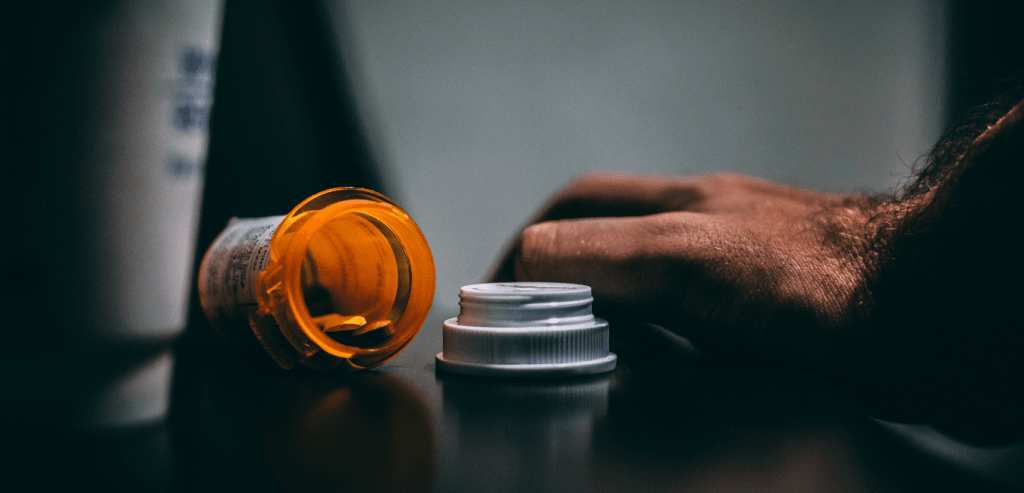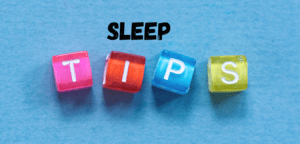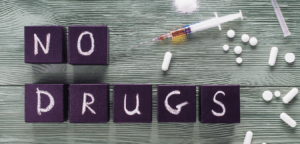Different types of drugs affect your body in different ways, and the effects associated with drugs can vary from person to person. How a drug effects an individual is dependent on a variety of factors including body size, general health, the amount and strength of the drug, and whether any other drugs are in the system at the same time. It is important to remember that illegal drugs are not controlled substances, and therefore the quality and strength may differ from one batch to another.
Drugs can have short-term and long-term effects. These effects can be physical and psychological, and can include dependency.
You may act differently, feel differently and think differently if you have taken drugs. And you may struggle to control your actions and thoughts.
You might begin to use drugs without thinking about any harm to your body. You might think drugs won’t become a problem because you are only a casual user. The more you take a drug, the more likely you are to build up a tolerance to its effects. This can lead to the need to take larger doses to obtain the effects of the drug. For this reason, evidence suggests that after prolonged use, many drugs can cause dependence. Drug dependence can quickly begin to affect your psychological and physical health, and can also affect your work and social life.
It is important to remember that there is no safe level of drug use. Be careful when taking any kind of drug.
Different drugs, different effects
Drugs affect your body’s central nervous system. They affect how you think, feel and behave. The three main types are depressants, hallucinogens and stimulants:
- Depressants slow or ‘depress’ the function of the central nervous system. They slow the messages going to and from your brain. In small quantities depressants can cause a person to feel relaxed and less inhibited. In large amounts they may cause vomiting, unconsciousness and death. Depressants affect your concentration and coordination, and slow your ability to respond to situations. It is important to not operate heavy machinery while taking depressants. Alcohol, cannabis, GHB, opiates (heroin, morphine, codeine) and benzodiazepines (minor tranquillisers) are examples of depressants.
- Hallucinogens distort your sense of reality. You may see or hear things that are not really there, or see things in a distorted way. Other effects can include emotional and psychological euphoria, jaw clenching, panic, paranoia, gastric upset and nausea. Ketamine, LSD, PCP, ‘magic mushrooms’ and cannabis are examples of hallucinogens.
- Stimulants speed or ‘stimulate’ the central nervous system. They speed up messaging to and from the brain, making you feel more alert and confident. This can cause increased heart rate, blood pressure and body temperature, reduced appetite, agitation and sleeplessness. In large amounts stimulants may cause anxiety, panic, seizures, stomach cramps and paranoia. Caffeine, nicotine, amphetamines (speed and Ice), cocaine and ecstasy (MDMA) are examples of stimulants.
Risk factors for drug-related harm
The effects of a drug, and how long they last, depend on a number of factors:
- the type and strength of drugs that you use
- how the drug was made — substances manufactured in home labs may contain bacteria, dangerous chemicals and other unsafe substances, and have an unknown strength. Even one dose may cause an overdose that leads to brain damage or death
- your physical characteristics (including height, weight, age, body fat and metabolism)
- the dose that you take
- how often and for how long you have been using drugs
- how you ingest the drug (by inhalation, by injection or orally). Compared with swallowing a drug, inhalation and injection are more likely to lead to overdose and dependence. If you are injecting drugs, sharing injecting equipment will increase your risk of contracting serious diseases such as hepatitis and HIV. It will also increase your risk of serious infection
- your mental health, mood and environment (that is, whether you are in a secure, happy place or an unsafe place) can affect the experience you have when taking drugs. If you have a mental health condition, drugs may exacerbate or complicate the symptoms of that condition
- whether you mix drugs, including alcohol. In particular, alcohol use may lead to high risk behaviour (such as drink driving) which can result in the serious injury or death of yourself or others.
Physical harms from drug use
Drug use can affect short- and long-term health outcomes. Some of these health outcomes can be serious, and possibly irreversible.
Drug use can lead to risky or out of character behaviour. When affected by drugs:
- You are more likely to have an accident (at home, in a car, or wherever you are).
- You may be vulnerable to sexual assault or you may engage in unprotected sex. Either of these could lead to pregnancy and sexually transmitted infection.
- You could commit a sexual assault or other violent act.
- You may find it hard to sleep, think, reason, remember and solve problems.
Drug use can also result in long-term health outcomes that include:
- harm to organs and systems in your body, such as your throat, stomach, lungs, liver, pancreas, heart, brain, nervous system
- cancer (such as lung cancer from inhaling drugs)
- infectious disease, from shared injecting equipment and increased incidence of risk-taking behaviors
- harm to your baby, if you are pregnant
- acne, or skin lesions if the drug you are taking causes you to pick or scratch at your skin
- needle marks and collapsed veins, if you inject regularly
- baldness
- male pattern hair growth in women, such as facial hair
- jaw and teeth issues due to clenching and grinding your teeth; or bad breath, teeth cavities and gum disease
- mood swings and erratic behavior
- addiction
- psychosis (losing touch with reality)
- accidental overdose
- higher risk of mental illness, depression, suicide and death.
Effects of common drugs
Cannabis (hash, pot, dope, weed, grass, skunk, marijuana)
- may cause relaxation and altered perception
- can lead to increased heart rate and low blood pressure
- can make you feel relaxed and happy, but can also cause lethargy, anxiety, paranoia, and psychosis in extreme cases. A history or family history of mental illness may increase the possibility of more extreme psychotic reactions
- is linked to mental health problems such as schizophrenia and, when smoked, to lung diseases such as asthma, chronic bronchitis and lung, throat, mouth and tongue cancer
- affects how your brain works. Regular use can make it hard for you to concentrate, learn and retain information
- reduces your fertility
- when mixed with tobacco, is likely to increase the risk of heart disease and lung cancer.
Cocaine (powder cocaine, coke, blow, Charlie, crack)
- gives you increased energy
- makes you feel happy, awake, confident and less inhibited, but has a nasty ‘come down’ that makes you feel depressed and unwell. (Using depressant drugs to help with the severity of come downs can increase the chances of the development of negative cycles of dependence.)
- can overstimulate the heart and nervous system and lead to a seizure, brain haemorrhage, stroke or heart attack (people have died from cocaine-induced heart failure)
- reduces your pain perception and may result in injury
- carries greater risk if mixed with alcohol or other stimulants, especially if you have high blood pressure or if you have an existing heart condition
- can harm your baby during pregnancy, and may cause miscarriage
- can increase the risk of mental health issues such a s anxiety, paranoia and psychosis
- if snorted, can cause damage to the lining of the nasal passage and nose
- if injected, can cause vein collapse and increased risk of HIV and hepatitis infection.
Mephedrone (meow meow, m-cat, plant food, bubble, meph)
- can induce feelings of happiness, euphoria and confidence, but can also cause anxiety and paranoia
- causes vomiting, sweating and headaches in some users
- can overstimulate your heart and nervous system
- can cause periods of insomnia
- can lead to fits and agitated and hallucinatory states
- if used in large amounts, can cause tingling of the hands and feet, seizure and respiratory failure
- has been linked to a number of deaths
- if injected, can cause vein collapse and increases the risk of HIV and hepatitis infection.
Ecstasy (MDMA, pills, E, eckies)
- can make you feel alert, warm and chatty
- can make sounds and colours seem more intense
- may cause anxiety, confusion, paranoia and even psychosis
- is linked (in cases of long-term use) to memory loss, depression and anxiety
- can lead to overheating and dehydration
- tends to stop your body producing enough urine, so your body retains fluid.
Speed (amphetamine, billy, whizz)
- can make you feel alert, confident and energetic
- can reduce appetite
- may make you agitated and aggressive
- may cause confusion, paranoia and even psychosis
- can make you very depressed and lethargic for hours or days, when used a lot
- can cause high blood pressure and heart attacks
- is more risky if mixed with alcohol, or if you have blood pressure or heart problems
- puts you at risk of overdose, vein and tissue damage, and infectious disease (such as hepatitis C and HIV), if you inject speed.
Ice (crystal meth, shabu, crystal, glass, shard, P):
- may create feelings of pleasure and confidence
- can make you feel alert and energetic
- can cause you to repeat simple things like itching and scratching
- can cause enlarged or dilated pupils and a dry mouth
- may make you grind your teeth
- can cause excessive sweat
- can increase your heart rate and breathing
- may reduce your appetite
- may increase your sex drive
- puts you at risk of infectious diseases (such as hepatitis B, hepatitis C and HIV) if you inject it
- can damage your nasal passages and cause nose bleeds if you snort it.
Effects of a ‘come down’
A ‘come down’ is your body’s reaction to the substances that you have taken, after the initial reaction. In other words, it is the after effect.
How long it lasts, and how bad it is, depends on the type of drug (stimulant or depressant) and your age, sex and tolerance.
Common after effects are flatness, depression and exhaustion. Or you may feel:
- shaky, dizzy, sweaty
- headachey
- nauseous
- fatigued
- not hungry
- sleepy or unable to sleep.










